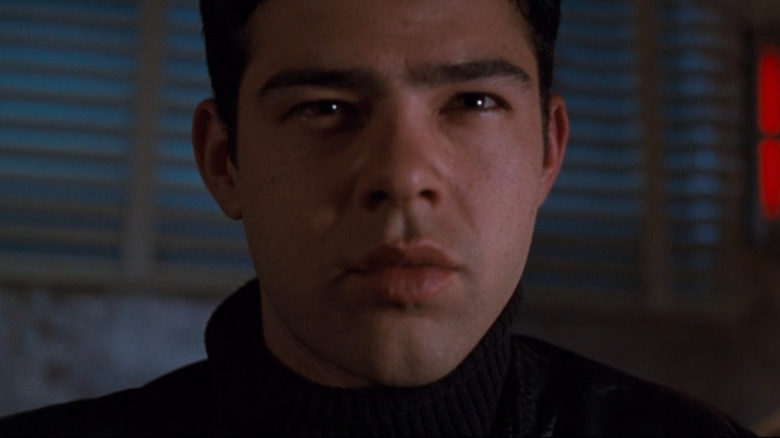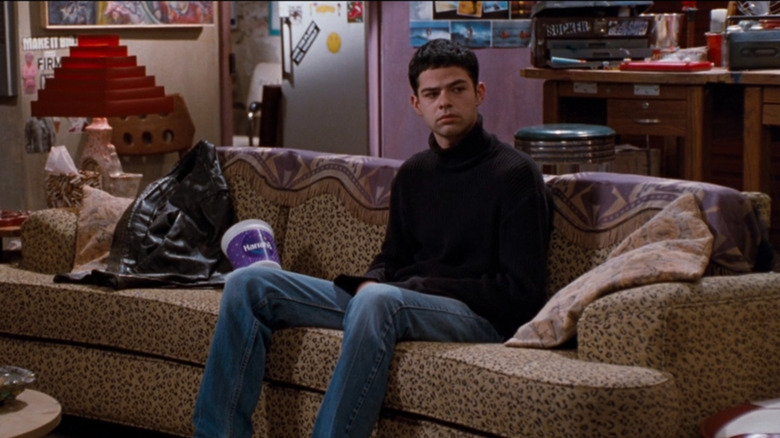Empire Records Started With A True Story Told To Carol Heikkinen
Creative people can find inspiration from a wide variety of places. Stepping out of your comfort zone, nature, personal or physical obstacles, and the arts are just a few areas that could lead to your next great creation. But more often than not, you need not look further than the people and places around you to find your next story or characters. And that's exactly what screenwriter Carol Heikkinen did when she wrote the script for "Empire Records."
The cult classic teen movie about a group of young people that work at a record store was based on her days as an employee at the Tower Records in Phoenix, Arizona's Christown Mall. The first draft was written on spec over the course of a few weeks and was sold about a week after completion in a bidding war. But that version of the story was pretty different from the one that ended up onscreen. While it was still a character-driven teen dramedy, some of the film's most memorable moments and themes didn't come until the second draft.
Part of the reason why they didn't come along until later was that Heikkinen didn't have all the pieces together yet. Although that changed when she incorporated a story that she heard while working at the West Hollywood Tower Records. So in a way, a bold and courageous act did change the course of history.
Damn the man, save the Empire
In an article celebrating the 25th anniversary of "Empire Records," Carol Heikkinen spoke to Australian reporter Paul Donoughue and revealed the origins of night manager Lucas' less than fruitful trip to Atlantic City instead of the local bank as his boss Joe intended.
For the movie, the character played by Rory Cochrane decides to take the independent record store's $9,104 earnings to the Las Vegas of the East Coast in a misguided attempt to stop Music Town from giving his place of employment a corporate makeover. However, he loses everything at the craps table and must return to Empire Records empty-handed, thus triggering a series of events that leads to the employees and the community banding together to save their beloved shop. In real life, the employee that took the money was just straight up trying to rob the store. But the fact that he came back was what inspired the writer to include it in her story.
"The interesting part of it to me was he came back to the store. And he did not get arrested. I think he did get fired but they made arrangements for him to pay it back without getting arrested."
Originally, that's what was supposed to happen to Lucas as well. After sitting on the couch all day, he was just going to work out a deal with Joe where he could pay the store back somehow. At that time, the script was presenting a "much more low-key movie [...] about friendships and family." But after adding the bits about a Music Town franchise and saving the small business from a big corporation in her second pass at the story, everything came together and created a battle cry for the '90s alternative culture and beyond.

